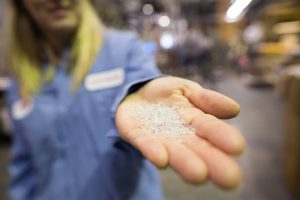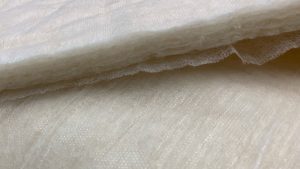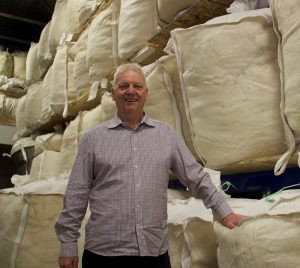COLUMBIA, S.C. — January 13, 2022 — MycoWorks, a biotechnology company that specializes in mycelium-grown materials for use as sustainable, luxury-quality leather alternatives, today announced plans to establish operations in Union County, South Carolina. The company’s $107 million investment will create 400 new jobs.
Established in 2013, MycoWorks’ patented Fine Mycelium™ process produces materials including Reishi — a globally recognized breakthrough in materials science — that mimics the performance of animal leathers and lowers environmental impacts. The material offers creative solutions and new design possibilities for fashion and luxury brands while offering relief to supply chain constraints.
Located at 260 Midway Drive in Union, MycoWorks’ new facility will increase the company’s capacity to meet the fashion and luxury industries’ growing demand for its materials, including its flagship product Reishi.
Operations are expected to be online in early 2023. Individuals interested in joining the MycoWorks team should email talent@mycoworks.com.
The Coordinating Council for Economic Development has approved job development credits related to this project.
“Deciding where to lay down roots was a big decision, but the partnership offered by state and local officials in combination with access to talent and amenities in the area made it easy,” said MycoWorks COO Doug Hardesty. “We look forward to growing a world class team and operation in Union County, South Carolina.”
“More and more innovative and sustainable companies are finding that South Carolina is an ideal location to establish operations, and we welcome MycoWorks to that growing roster of businesses,” noted Governor Henry McMaster. “The $107 million investment and creation of 400 new jobs will make a significant impact in Union County and beyond.”
“We are at a time of great transformation among various industries, and companies like MycoWorks are paving the way in their arena,” said Secretary of Commerce Harry M. Lightsey III. “We welcome this groundbreaking business to South Carolina and look forward to watching them succeed for years to come.”
“We are very excited to welcome MycoWorks to Union County,” said Union County Supervisor Frank Hart. “This project will greatly benefit the citizens of Union County through the jobs which will be created and the diversification of our industrial base within our community.”
“We say the Upstate is where manufacturing and technology intersect, and MycoWorks is showing it by choosing to scale up in Union County,” Upstate SC Alliance President and CEO John Lummus. “Their sustainable biotechnology products add high-tech opportunities to the region’s vibrant engineered materials ecosystem.”
Posted: January 18, 2022
Source: South Carolina Office of the Governor








